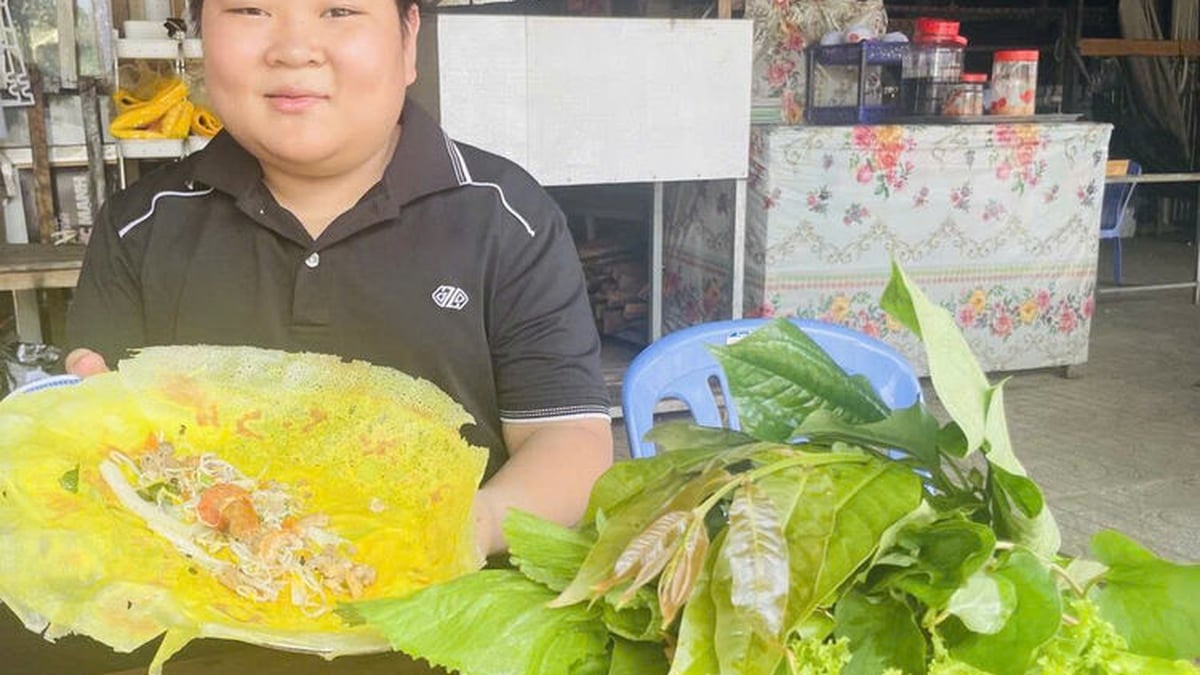SGGP
Passion fruit has a high price and has built a brand for export, so in recent years, many farmers in the Central Highlands have "made a fortune" thanks to this agricultural product. However, experts recommend that people need to cooperate with enterprises to purchase output to avoid the risk of "good harvest, low price".
 |
| Mr. Pham Thu Cong's passion fruit garden (Yen The ward, Pleiku city, Gia Lai province) is growing well. |
Gia Lai province is currently growing about 4,500 hectares of passion fruit, with 19 growing area codes for this plant. Large corporations are also building raw material areas and purchasing products for people. Passion fruit is currently priced high and brings great value to growers. People in many places are expanding their acreage with the hope of changing their lives.
The 5-hectare passion fruit field of Mr. Pham Thu Cong's group (Yen The ward, Pleiku city, Gia Lai province) has been planted for 3 months and is now growing well. Passion fruit is grown on bamboo trellises and coffee tree trunks. Under the roots of the passion fruit, there is an information sheet showing the origin of the plant variety. According to Mr. Cong, 3 months ago, seeing that passion fruit had a high price and there was a business that guaranteed the output, he boldly invested in planting. Most of the land used to grow passion fruit was converted from coffee trees.
In Mang Yang District, Gia Lai Province, passion fruit trees also bring great benefits to the local people. Mr. Vo Minh Quang, Head of the Department of Agriculture and Rural Development of Mang Yang District, said that 382 hectares of passion fruit have been developed in the area and 5 growing area codes have been established for export to China. Currently, passion fruit is priced at about 15,000 VND/kg for regular type and 38,000 VND/kg for export quality type.
“Compared to other crops, passion fruit is currently a crop with high economic value. The district’s future direction is to continue expanding development along the chain of links between people, businesses, and cooperatives to provide technical support, product consumption, and limit risks for people,” said Mr. Quang.
In Dak Lak , in recent times, many localities have also strongly developed passion fruit growing areas and people have earned great profits from this agricultural product. Cu Kuin District ( Dak Lak Province) is one of the largest passion fruit growing areas in the province. Thanks to passion fruit, in recent years, people's lives here have had many positive changes.
Mr. Le Van Trong Duc (Ea Hu commune, Cu Kuin district) said that last year, after deducting all expenses, his family earned more than 300 million VND from the passion fruit garden. According to Mr. Duc, his family has 1 hectare of land, which used to mainly grow coffee and pepper. However, due to the continuous drop in coffee prices and the continuous death of pepper due to disease, he switched to growing passion fruit. Thanks to participating in the cooperative, passion fruit has a stable market, and his family's economy has improved compared to before.
Mr. Nguyen Thanh Minh, Head of the Department of Agriculture and Rural Development of Cu Kuin district, said that thanks to suitable soil and climate, passion fruit in the locality grows very well, with high productivity, averaging 30-50 tons/ha.
“Currently, the district is planning planting areas and converting some ineffective crop areas to grow passion fruit. This is to take advantage of vacant land areas or areas that are not suitable for ineffective crops,” Mr. Minh added.
According to Mr. Vu Duc Con, Deputy Director of the Department of Agriculture and Rural Development of Dak Lak, the province currently has more than 1,000 hectares of passion fruit. Passion fruit is suitable for the soil and climate of Dak Lak, so it grows very well. In particular, last year, passion fruit was approved for official import by the Chinese market, opening up opportunities and a sustainable direction for this agricultural product. With the current price, passion fruit is a crop that brings high economic efficiency, so people will strongly develop the area. However, the provincial agricultural sector also recommends that people should not develop the area massively, avoiding the mistake of oversupply like other agricultural products in the past. In addition, people need to focus on investing in product quality to increase the value of this agricultural product.
Dr. Phan Viet Ha, Deputy Director of the Central Highlands Institute of Agricultural and Forestry Science and Technology (Ministry of Agriculture and Rural Development), said that in terms of ecological factors, the Central Highlands is suitable for growing passion fruit. Passion fruit is a food crop, so production needs to pay attention to output. In areas that have established value chains, large raw material areas, and have businesses that guarantee consumption, purchase, and support seeds and techniques, farmers need to boldly invest. In areas that do not have raw material areas or outputs, farmers need to be cautious. Accordingly, before developing on a large scale, farmers need to determine the output, then organize production in groups with a stable purchasing system, then the investment will be safe. When investing in expanding the scale of goods, farmers need to calculate and build growing area codes for export, thereby increasing the value of the product.
Source

































































































Comment (0)